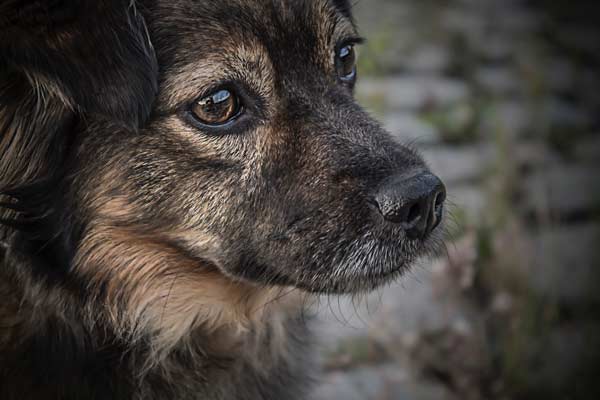
When we talk about toxins and antioxidants, we often do so in a human context, yet our dogs are equally vulnerable to outdoor and indoor pollution. In the same way that we worry about their diet, ensuring they obtain quality protein sources and a blend of fruits and vegetables, we can also try to eliminate toxins from their daily life by taking important steps such as eliminating toxins from their reach, and feeding them particular foods and supplements.
Common Toxins for Dogs
Pets are more vulnerable to toxicity, because they are closer to floors, carpets, garages and other potentially toxic surfaces in the home. If you are still using cleaning products containing chlorine, bleach, and ammonia, consider less toxic alternatives such as essential oils diluted in water, baking soda and lemon, or other eco friendly cleaning products. This applies to anything and everything you use to keep home items clean – including laundry detergent on bedding. Opt for laundry liquids which are free of artificial colors, fragrance, and preservatives and make sure they are biodegradable.
Additional toxins to keep away from dogs are antifreeze (which is temptingly sweet but extremely toxic to dogs), formaldehyde (a known carcinogenic for animals that is present in many furnishings and household cleaners), and garbage (which can contain dangerous chemical fluids in addition to leftover food). It pays to be informed of what is in your furnishings, since you, too, might be unwittingly exposing yourself to potential carcinogens.
Detox Foods and Supplements
Many veterinarians suggest specific liver formulas containing Silymarin, SAME, B complex, and other important supplements, whose protective effects have been shown in dogs and other animals. Make sure to consult with your veterinarian before starting your dog on any supplements, since their age and any health conditions they may be facing, will indicate the type of supplements and dosage that is most appropriate.
Support your pooch’s kidney health by adding parsley to their diet, and by ensuring they have a constant supply of fresh, clean water. Many dog owners swear by water kefir: a non-dairy probiotic that can help your dog enjoy greater internal balance. Finally, if your dog has difficulty going to potty regularly, feed it a fiber sources such as mashed pumpkin or sweet potato.
Detoxing Your Dog’s Skin
Both dogs and cats eliminate toxins through their skin, making regular brushing important. Grooming also removes excess dust and debris that may contain chemical particles, ensuring your dog does not ingest these chemicals when grooming itself. Use top quality, natural products that do not contain fragrances or other harmful chemicals, which can be absorbed during bath time.
Detoxifying your dog involves a combination of external and internal support. Avoid furnishings and cleaners containing formaldehyde and other chemicals, feed your dog a varied diet and consider liver and immune support, and brush their skin regularly, to help remove harmful chemicals from their fur.